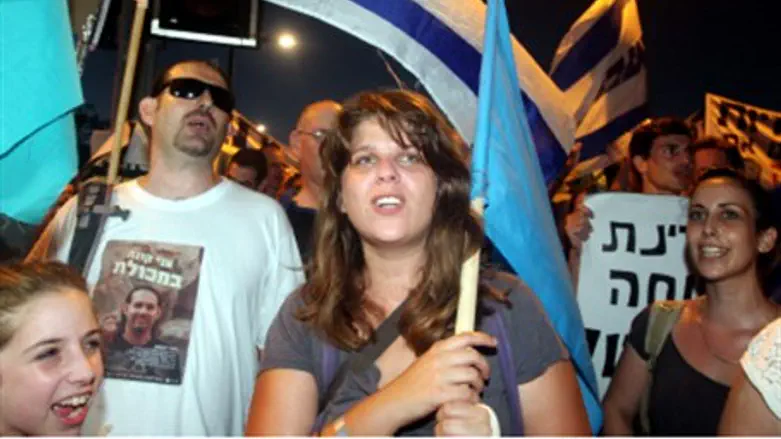
Several streets in Tel Aviv have been closed off by police in order to enable the so-called “social protest,” which is being held on the two-year anniversary of its original, large-scale success.
This year's protest is expected to be relatively low key, with only a few thousand people participating. The 2011 protests involved hundreds of thousands of people throughout Israel.
The 2011 protests were carried out with the involvement of the New Israel Fund, a radical left wing fund that poses as a mainstream Zionist enterprise, but which, according to its numerous critics, promotes myriad forms of destabilization and divisiveness in Israeli society.
The “social protest” was purportedly a spontaneous uprising of sorts by the Israeli middle class, against the high cost of living and the difficulty in purchasing housing. In fact, it was largely driven by the media, which exhorted the masses to hit the streets. Performances by popular singers were a factor in drawing out large numbers of people to the demonstrations, as well. Communist activists boasted that the protest was their brainchild, after the protests had died down.
The protest's leaders made a host of demands from the government, largely socialist in nature, and some of these demands were met through the establishment of a committee headed by Prof. Manuel Trajtenberg and the adoption of its recommendations.
The result, financial analysts say, was a slowing of the Israeli economy, lessened investment by industrialists, higher taxes and a sharp drop in advertising revenues for the mass media. Another result, many political analysts agree, was the success of the Yesh Atid party, which claims to represent the middle class.
The leaders of the present social protest held a news conference lat week in which they blamed Yesh Atid's leader, Finance Minister Yair Lapid, of failing to deliver the change he was elected to bring, and selling out the social protests.